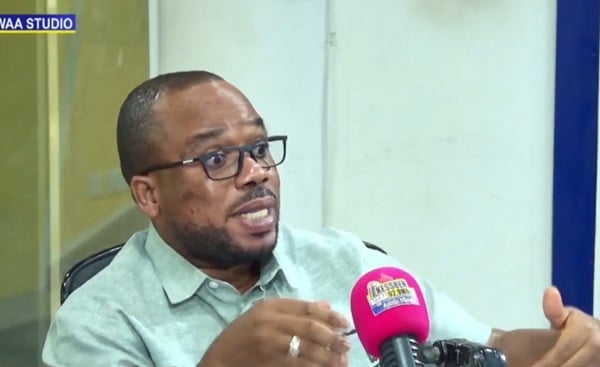The recent allegations by Benjamin Kofi Quarshie, a member of the National Democratic Congress (NDC) Transition Team’s Infrastructure Committee, have ignited a firestorm of controversy, accusing the previous New Patriotic Party (NPP) government of leaving behind a legacy of corruption and inefficiency. Quarshie, speaking on Kessben FM, specifically targeted the Gold for Oil (G4O) program, characterizing it as a breeding ground for corruption, lacking transparency and structured with significant flaws. He further emphasized the shocking extent of the alleged mismanagement, expressing his dismay at the apparent misuse of state resources.
Quarshie’s assertions paint a bleak picture of the NPP’s financial stewardship. He declared that the NPP government maintained a façade of stability through unsustainable debt accumulation, diverting funds intended for development projects. This alleged mismanagement, according to Quarshie, permeated several flagship programs initiated by the NPP, with funds purportedly ending up in private pockets instead of serving their intended public purpose. The gravity of these accusations suggests a systemic failure of oversight and accountability within the previous administration.
The NDC Transition Team’s Infrastructure Committee, according to Quarshie, is poised to release its findings to the public, promising to expose what he termed “deep-seated corruption” within the NPP government. This impending revelation is anticipated to provide detailed evidence supporting the allegations and potentially trigger further investigations into the alleged misappropriation of public funds. The committee’s report is likely to become a focal point of political debate and public scrutiny, potentially influencing public perception of both the NPP and NDC.
Quarshie also addressed concerns regarding President Mahama’s appointments, assuring NDC supporters that the selection process is being meticulously handled to ensure the placement of competent individuals aligned with the President’s vision. This statement signals a focus on rebuilding public trust and ensuring the effective implementation of the NDC’s agenda. The emphasis on competence and alignment with the President’s vision suggests a desire to differentiate the current administration from its predecessor and to demonstrate a commitment to efficient governance.
The allegations against the NPP raise critical questions about the transparency and accountability of public institutions. If substantiated, the alleged corruption within the G4O program and other initiatives represents a significant betrayal of public trust and a substantial impediment to national development. The forthcoming report from the NDC Transition Team’s Infrastructure Committee holds the potential to shed light on these allegations and provide a deeper understanding of the extent of the alleged mismanagement.
The ramifications of these accusations extend beyond the political arena, impacting public confidence in governance and the efficient allocation of resources. The alleged corruption within the NPP, if proven, could have long-lasting consequences for Ghana’s development trajectory and further fuel the existing political polarization within the country. The ensuing investigations and public discourse will undoubtedly shape the political landscape and influence future policy decisions. The public’s response to these allegations will also serve as a crucial barometer of public sentiment and expectations for accountability and transparency in government.














